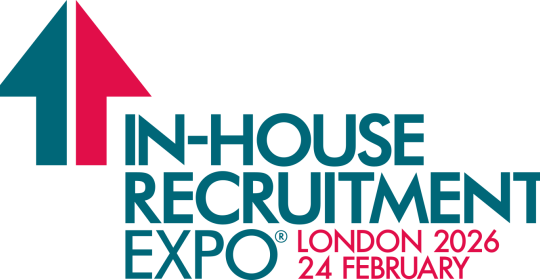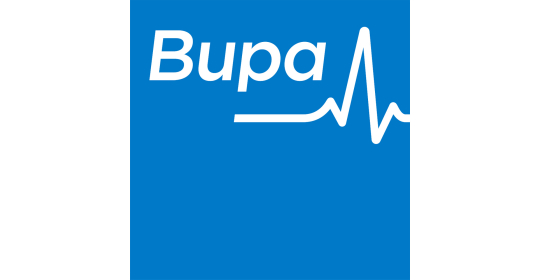1st October 2013 | The Grange City Hotel, London
The Onrec online recruitment conference has a very special offer! For every ticket purchased in August, Onrec will donate £50 to the Anthony Nolan charity; our event charity.
David Hurst, CEO, Onrec.com commented "We are delighted to have the Anthony Nolan charity as our conference charity. Their impressive ability to match donors to people needing transplants has great synergy with online recruitment industry, matching candidates to jobs."
With 480,000 potential candidates on our UK register and links to 20 million people worldwide, Anthony Nolan is a national recruiter with global reach. We have developed an algorithm to make smarter, more efficient matches – the only difference is that the roles we offer are lifesaving ones.
Anthony Nolan is the chosen charity for the Onrec Conference and Exhibition 2013. Lila Dowie, Senior Corporate Partnerships Manager, Anthony Nolan, said "We will be speaking at the conference and giving attendees the chance to join the bone marrow (or stem cell) register on the day.
Anthony Nolan is a charity that’s all about finding the right person for the job. Every day we recruit people through our website, in schools and universities, out in the community and through companies. Our candidates are all potential donors, people willing to offer a tiny number of their stem cells to someone they have never met, in a process very similar to giving blood. Our clients, on the other hand, are the 1,700 people in the UK and 52,000 worldwide who are suffering from blood cancers like leukaemia and currently waiting for a match that could save their life.
We make three of these matches every day but for each position successfully filled, there is another that remains empty because the right donor can’t be found. Matches are made thanks to our unique register – the first of its kind in the world and the largest in the UK – which holds the details of more than 480,000 people, with tens of thousands of new donors registering each year. Every one of them is a potential lifesaver because for a child or adult with blood cancer, a transplant is their last hope of life when all other treatment has failed.
The register is open to anyone between the ages of 16 and 30 and while the positions we’re looking to fill are all the same (Donor, £0k per annum, no experience necessary), the job descriptions are very different. For a match to be made, the patient needs a donor who matches their tissue type. This may sound straightforward but there are, in fact, more possible permutations of tissue type then there are people living on the planet. To identify someone’s tissue type (or Human Leukocyte Antigen – HLA) we need to determine the alleles (or barcode) for six particular genes on chromosome 6. There are thousands of different alleles, therefore millions of potential types and if we can’t match this minute detail on a person’s biological CV, they can never be the right person for the job.
70% of patients will not find a matching donor from within their own families; instead they turn to us to find them an unrelated donor. So how do we make sure someone’s a perfect fit? When someone joins the donor register, they don’t simply add their name to a list, as with organ donation. Each potential donor provides a saliva sample through one of our quick and easy ‘spit kits’, which we then process in our laboratories to analyse and identify their tissue type. This processing is both complex and costly, requiring multiple highly specialised techniques and taking several weeks for every new donor sample".
Onrec will be donating £50 for every delegate ticket which is sold throughout August. Tickets are £350+VAT. Contact stuart@onrec.com for more information.
Lila Dowie, Senior Corporate Partnerships Manager, Anthony Nolan continued, "Finding a donor is like searching for a needle in a global haystack. Because of this, we are developing the Genotype Prediction Algorithm (GPA), which allows us to dramatically reduce the time required to find a match. It’s like a finely-tuned metal detector, one that suddenly makes finding that elusive needle a whole lot less daunting.
Just as recruiters use complex algorithms to identify specific job candidates from among the countless people in your databases, we use the GPA to zero in on potential donors. In short, it gives us the ability to predict a high-resolution HLA type from a low or medium resolution type, which is the level of detail we have for most historic donors on the register. What this means is that we can better predict from our data who will be the highest percentage match for a patient. It also provides a filter that can be added to search results in order to pick the best possible donors for patients of a similar ethnic group.
To create the GPA, we took 20,000 young male donors between 18 and 30, from a British/Irish Northern European Caucasoid background, as this is the UK’s largest ethnic group. They were typed at a very high resolution so we could translate that into something representative of what we can expect to find in the general population and, therefore, the percentage chance that someone will be the best match.
We are currently working to expand this algorithm to include data from other ethnic groups, specifically Indian Asian, the largest ethnic minority group in the UK. Our current ‘six per cent’ campaign is focused on recruiting 3,000 Asians of Indian descent onto our register and data from this campaign will then be used in developing a GPA for this ethnic group as well.
While finding donors is our primary goal, only marginally less important is communication. Potential donors remain on the register until the age of 60, so one of our biggest challenges is keeping in touch with them in the long term. After all, when someone comes up as a match we then need to be able to find them. Plus, our donors aren’t just potential lifesavers, they are also powerful ambassadors for Anthony Nolan and regularly act as fundraisers, volunteers and recruiters for our cause. Because of this we have spent the last few years developing a detailed communication strategy to mirror our recruitment strategy.
We contact everyone on the register each year and each contact is reviewed to ensure that the person is warm and remains willing to donate. We ensure that channels are kept open to track changing contact details, while encouraging interaction and further support.
We also run regular ‘update your details’ campaigns via email, text, digital media and mailings and engage with donors on social media sites such as Twitter. Meanwhile, we are trialing whether contacting likely donors at an earlier stage improves retention rates.
Of course nothing we do would possible without the generosity of our supporters. If you have expertise that could help us in our work, would like to consult or support us then please get in touch. Whether it’s donating time to volunteer, donating money or pro-bono advice to help fund our work or simply spitting in a tube and signing up to the register, Anthony Nolan will gratefully accept any assistance you can provide. Help us recruit more people and help us to save more lives. Of all the positions you’ll ever fill, the role of lifesaver might just be the most important."
To find out more and join the register please visit www.anthonynolan.org/bethecure
For more information on Anthony Nolan please contact Lila Dowie on 020 7284 8243 lila.dowie@anthonynolan.org
Registered charity no 803716/SCO38827





